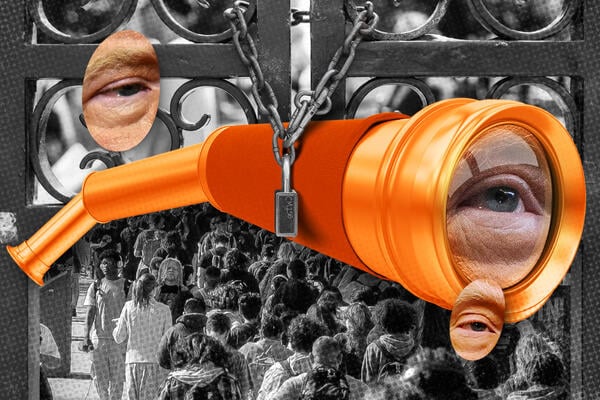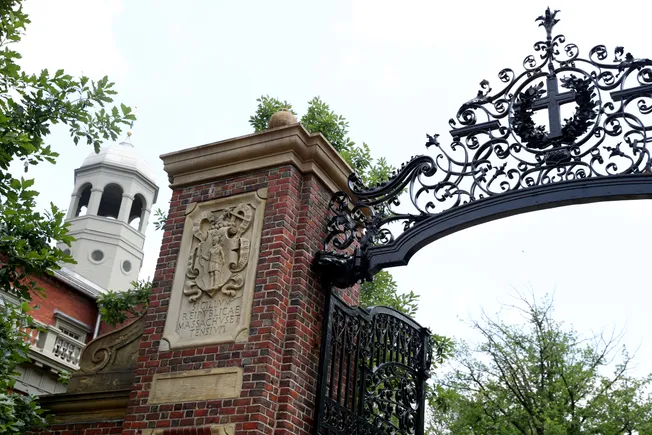In Free Speech Coalition v. Paxton, the U.S. Supreme Court broke new ground in applying relaxed First Amendment scrutiny to state-imposed burdens on lawful adult access to obscene-for-minors content. The decision appeared outcome-driven to uphold laws that require websites with specified amounts of sexually explicit material to verify users’ ages. However, the Court indicated the holding applies only “to the extent the State seeks only to verify age,” such that, if handled in a principled manner, FSC v. Paxton should have relevance only for speech to which minors’ access may be constitutionally restricted.
FSC v. Paxton involved Texas HB 1181’s mandate that online services use “reasonable age verification methods” to ensure those granted access are adults if more than a third of the site’s content is “sexual material harmful to minors,” which the Court treated as content First Amendment law defines as “obscene for minors.” If an adult site knowingly fails to age-verify, Texas’ attorney general may recover civil penalties of up to $10,000 per day, and $250,000 if a minor actually accesses pornographic content. HB 1811 is one of over 20 state adult-content age-verification laws recently passed or enacted.
Obscenity is among the few categories of speech the First Amendment doesn’t protect. In 1973’s Miller v. California, the Court defined obscenity as speech that (1) taken as a whole appeals primarily to a “prurient interest” in sex (i.e., morbid, unhealthy fixation with it); (2) depicts or describes sexual or excretory conduct in ways patently offensive under contemporary community standards; and (3) taken as a whole, lacks serious literary, artistic, political, or scientific value. The Court has limited the test’s scope to what it calls “hardcore pornography.” Material that is “obscene for minors” is that which satisfies the Miller test as adjusted to minors. Sexually explicit material can thus be obscene for minors but fully protected for adults.
Under these tests, the government may ban obscene speech and restrict access by those under 18 to speech that is “obscene for minors,” but it cannot cut off adults’ access to non-obscene sexual material.
It’s long been accepted that, to access adult, potentially obscene-for-minors material in the physical world, showing identification to prove age may be required. So, a law requiring ID to access such content online might seem analogous on its face.
But online age-verification imposes risks physical ID checks do not. An adult bookstore clerk doesn’t save a photocopy of your license or track the content you access. Nor will hackers, therefore, try to access the ID. These are just some of the reasons surveys consistently show a majority of Americans do not want to provide ID to access online speech — whether adult material or other content, like social media.
Texas’ HB 1181 is similar to two federal statutes the Supreme Court invalidated around the turn of the millennium. In 1997, the Court in Reno v. ACLU unanimously struck down portions of the Communications Decency Act that criminalized transmitting “obscene or indecent” content. And in 2002’s Ashcroft v. ACLU, it considered whether the Child Online Protection Act violated the First Amendment in seeking to prevent children’s access to “material harmful to minors” in a way that incorporated age verification.
For decades, the Court has held statutes that regulate speech based on its content must withstand judicial review under strict scrutiny, which requires the government to demonstrate that the law is necessary to serve a compelling government interest and is narrowly tailored to achieve it using the “least restrictive means.” For laws restricting access to online speech, the Court held the laws in Reno and Ashcroft unconstitutional because they failed strict scrutiny. These cases followed in the footsteps of Sable Communications vs. FCC (1989) and United States v. Playboy (2000), in which the Court applied strict scrutiny to invalidate laws governing adult material transmitted by phone and on cable television stations, respectively.
But in FSC v. Paxton, the Court subjected Texas’ age-verification law for online adult content to only intermediate scrutiny. Under this standard of review, a speech regulation survives if it addresses an important government interest unrelated to suppression of speech, directly advances that interest in a direct and material way, and does not burden substantially more speech than necessary. The Court justified applying a lower level of scrutiny on the ground that minors have no First Amendment right to access speech that is obscene to them. Accordingly, it reasoned, even if adults have the right to access “obscene for minors” material, it is “not fully protected speech.” From there, the Court concluded that “no person — adult or child — has a First Amendment right to access speech that is obscene to minors without first submitting proof of age.” And it upheld the Texas law under intermediate scrutiny, concluding the regulations only incidentally restrict speech that can be accessed by adults.
The upshot is, going forward, it will be easier to justify laws restricting minors’ access to off-limits expression even if the law burdens adults’ access to material that is otherwise lawful for them.
At the same time, the majority opinion sought to limit the type of content that can be restricted only to material that meets the legal definition of “obscene-for-minors” material, and not anything that might be considered generally inappropriate.
As the Court held in Brown v. Entertainment Merchants Assn. (2011), “minors are entitled to a significant measure of First Amendment protection, and only in relatively narrow and well-defined circumstances may government bar public dissemination of protected materials to them.” And in Reno, which involved similar attempts to limit provision of online content to minors, the Court held the government could not ban “patently offensive” and “indecent” (but not obscene) material for everyone in the name of protecting children.
Free Speech Coalition should not be read as approving age verification laws for online speech generally that do not specifically target “obscene for minors” material. Its narrow focus will not support the recent spate of social media age-verification laws that have met significant judicial disapproval. Such laws have been enjoined in Arkansas, Mississippi, California, Utah, Texas, Ohio, Indiana, Florida, and most recently last week, when a federal court held Georgia’s version “highly likely [to] be unconstitutional” because it interferes with minors’ rights “to engage in protected speech activities.”
Thus, properly understood, FSC v. Paxton should have limited implications — including that it shouldn’t extend to general age-verification laws in the social media context.
The risk, of course, is that governments will seek to leverage FSC v. Paxton decision beyond its limited holding, and/or that lower courts will misuse it, to justify prohibiting or regulating protected speech other than that obscene as to minors. In defending laws that implicate the First Amendment, the government often argues it is regulating only conduct, or unprotected speech, or speech “incidental” to criminal conduct.
Courts for the most part have seen through these attempts at evasion, and where a speech regulation applies based on topic discussed or idea or message expressed, or cannot be justified without reference to its function or content, courts apply strict scrutiny. Under FSC, however, would-be regulators have another label they can use — “partially protected speech” — and the hope that invoking it will lead to intermediate scrutiny.
Only time will tell if the Court will keep the starch in its First Amendment standards notwithstanding what should be the purple cow of FSC v. Paxton.





